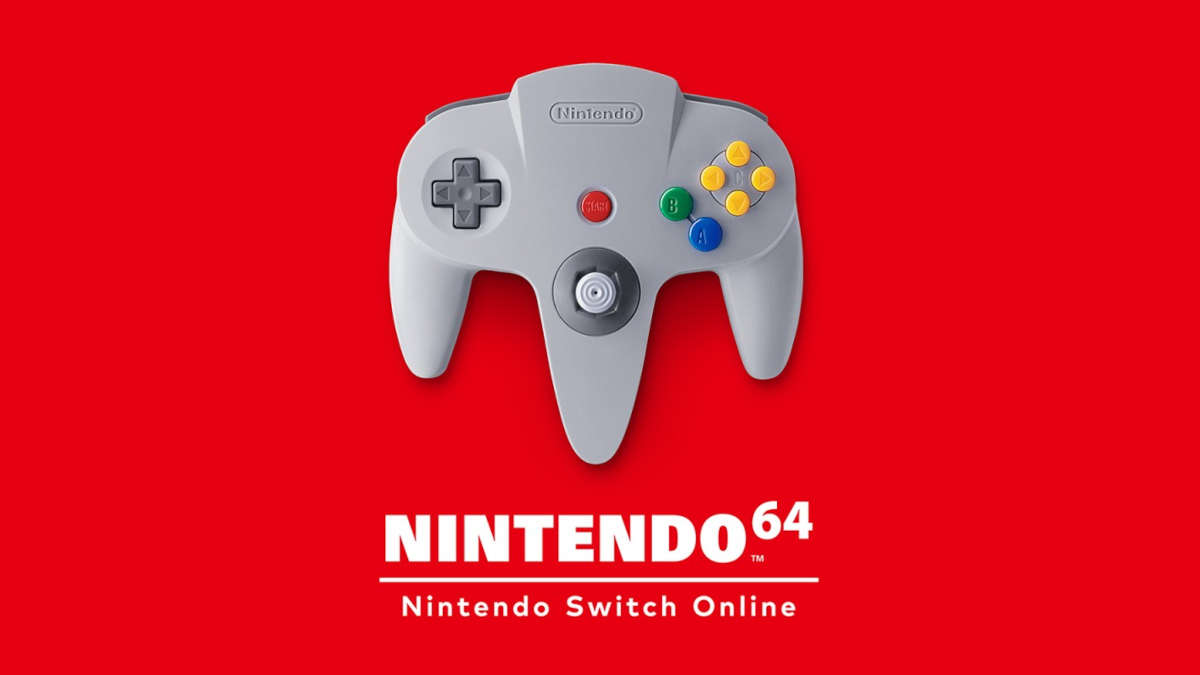If you’ve been into gaming for a few decades, you’ll have fond memories of Saturday mornings diving into the latest releases on Nintendo 64. While the likelihood of you having a Nintendo 64 still available to play is slim, the Switch offers a limited number of titles from the iconic console.
It’s been 28 years since the Nintendo 64 first hit TV units across the world, and 22 years since the final game was released for the console in North America (Tony Hawk’s Pro Skater 3, for those interested). That’s a long time to go without playing some of the classics that were available during the console’s six-year tenure.
However, if you’ve got a Nintendo Switch Online+ Expansion Pack membership, there are a few of those classics available to play. While some of them are definitely more niche, here are 10 of the best titles available to play. Apologies in advance if this list reminds you that we’re aging up a little too fast…
Super Mario 64
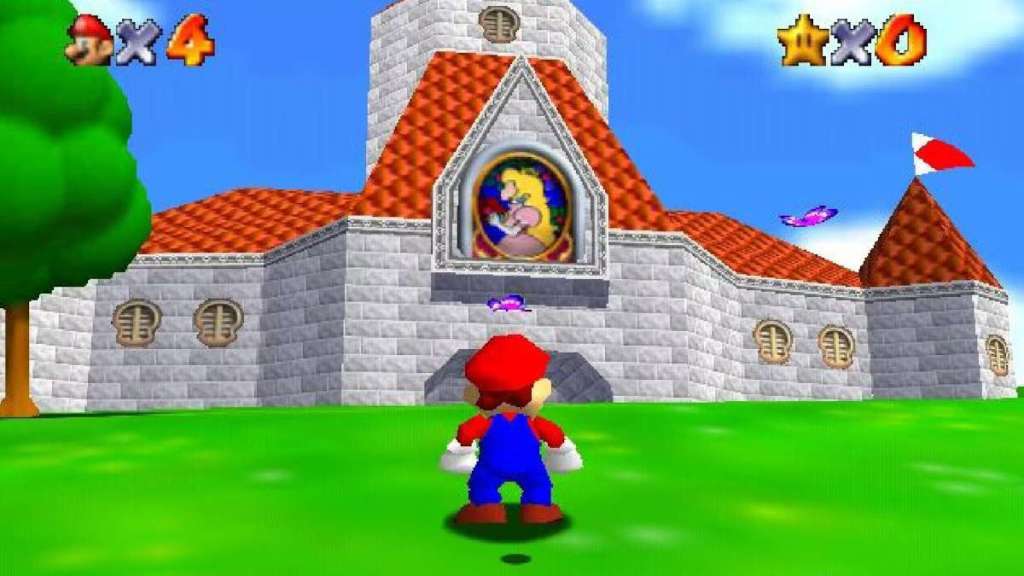
I can’t begin this list without mentioning Super Mario 64. It was one of two games that were released alongside the launch of the N64 in North America (alongside Pilotwings 64), so it’s one of the first games that springs to mind when I think back to queuing outside my local video game store to get the console on launch day in 1996.
I don’t feel like I need to explain Super Mario 64 too much, but just in case you’ve been living under a rock for the last 39 years, let me give you the TLDR (which goes for most of the games): Mario is invited to visit Princess Peach, only to find Bowser has infiltrated and kidnapped her. Cue a mad dash across the realm to locate and rescue the Princess, and take down Bowser.
Pokémon Snap
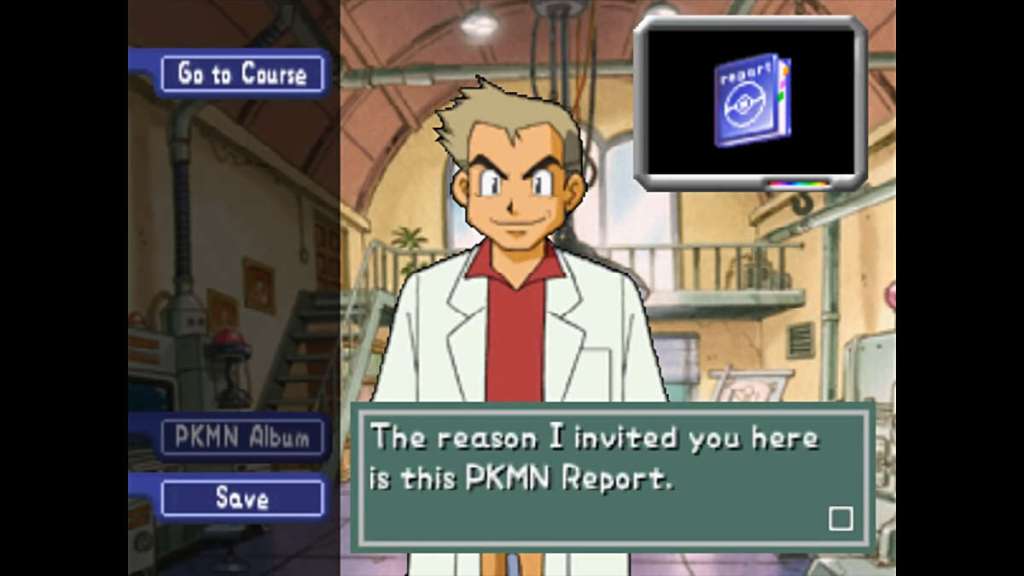
If you want an updated version of this classic 1999 Pokémon title, then you can get New Pokémon Snap, which was released specifically for the Switch back in 2021. However, nothing quite touches the original in terms of nostalgia and classic design. There’s something really special about curling up and snapping shots of Pokémon as remembered from childhood.
What tips the original over the successor, personally, is the lack of pressure to complete tasks. Admittedly there isn’t much in the new one either, but if you face a lot of pressure on a daily basis, being able to simply focus on taking photos rather than needing a reason to is actually really nice.
Paper Mario

First reaching North America in 2001, Paper Mario is the first in a series of six games (or seven, if you count Paper Jam) to feature Mario and associated characters in their “2.5D” forms. Again, the plot is familiar to all Mario fans – Bowser has Princess Peach, and Mario must battle through the Mushroom Kingdom to get her back and kick some overgrown turtle butt.
What makes the Paper Mario series incredibly special, and especially the first, is not only the art style but the puzzles and cooperation with other characters as well. The RPG elements and turn-based combat moments are tense, but not overly so.
GoldenEye 007
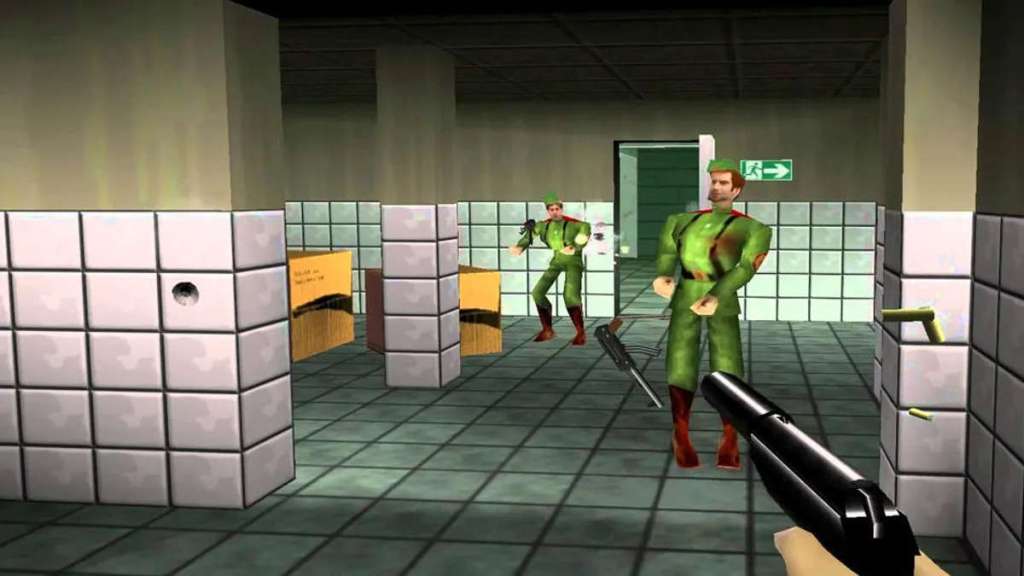
GoldenEye 007 is an absolutely guaranteed memory for anyone who grew up in the 90s, whether you actually played or simply knew other people who did and desperately wanted to but your parents thought it was too graphic. The idea of the latter is laughable now, considering the current gaming graphics we’ve become so used to, but the 90s were a different time.
Regardless, the cover art of GoldenEye 007 is enough to trigger some childhood memories for most, featuring Pierce Brosnan as Bond and Izabella Scorupco as Natalya Simonova. It’s based on the story from 1995’s GoldenEye, and as Bond, it’s up to the player to take down a criminal syndicate and prevent them from using a satellite weapon. It also had multiplayer options, which would usually result in an argument or two.
The Legend of Zelda: Ocarina of Time

Released in 1998, Ocarina of Time was the first of the Zelda game series to feature 3D graphics. It is, arguably, among the best and most iconic video games of all time, and at the time of release, it received far more pre-orders than any other game before it.
As with most other Zelda titles, you take the role of Link and have all of his usual weapons in your arsenal, including the iconic sword and shield. The story is hard to explain if you’ve never played, but in short, Link must awaken the five Sages, defeat Ganondorf, and protect the kingdom of Hyrule.
Kirby 64: The Crystal Shards
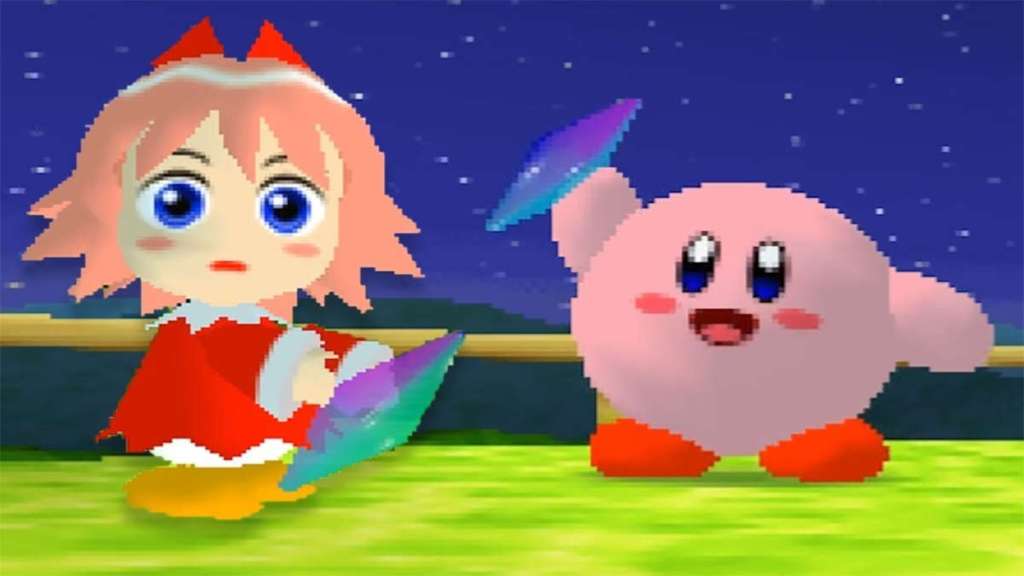
Kirby 64: The Crystal Shards was released in 2000, and as with the previous Ocarina of Time, The Crystal Shards was the first Kirby title to have 3D graphics. For most people of a certain age, Kirby is one of those games that invokes a huge amount of nostalgia and has come to many platforms in the time since it was first released, including the Wii, Wii U, and now the Nintendo Switch.
The story of The Crystal Shards involves Kirby having to reassemble a sacred crystal that has been shattered by Dark Matter. If you’ve ever played a Kirby game, you’ll know what to expect – explore 2.5D levels and devour your enemies to gain their powers. However, The Crystal Shards also introduced Power Combos, allowing you to mix and match powers to create new and much more powerful ones.
Banjo-Kazooie
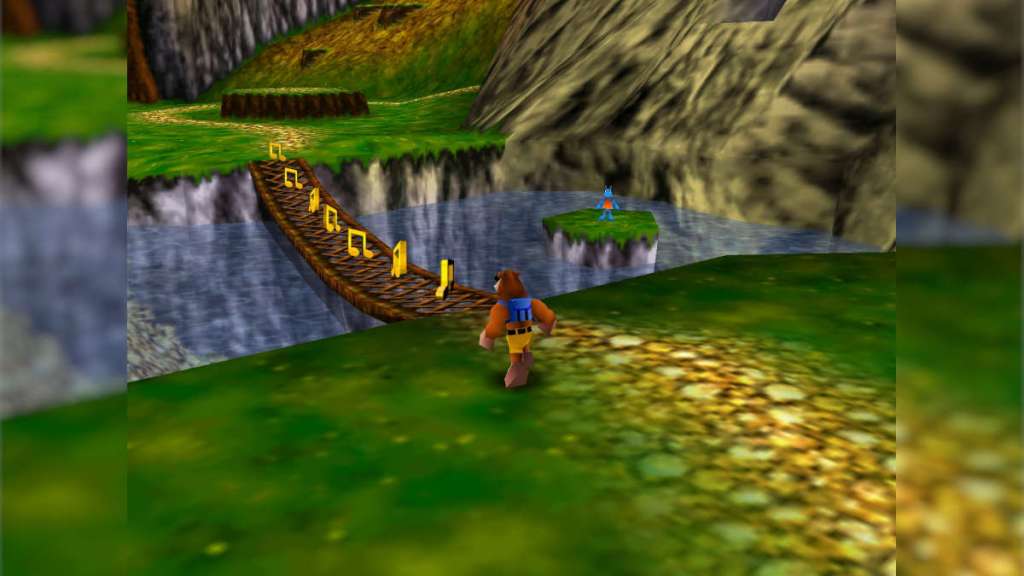
As far as platformers go, Banjo-Kazooie borders on being wildly underappreciated. The first in a line of five titles, Banjo-Kazooie was released back in 1998. Banjo, the honey bear in fetching yellow shorts and always in possession of his trusty backpack, was first introduced in 1997 as part of the cast of Diddy Kong Racing. Kazooie, the Breegull who can be found sheltering inside the aforementioned backpack, was introduced in this game and the pair became a beloved duo.
Together, Banjo and Kazooie must track down Banjo’s kidnapped sister, Tooty, who has been kidnapped by the evil witch Gruntilda. Gameplay is a mix of delightful (although often frustrating) platform levels, puzzles, and boss fights. There’s something incredibly satisfying about collecting music notes and Jiggies that open doors to new worlds.
Yoshi’s Story

Yoshi’s Story was released in North America in 1998, and is a fruit-eating joy to play regardless of age. While most of the other titles on this list are adventuring games with someone to rescue, Yoshi’s Story provides something different: the endless frustration of trying to be better than you were before. There is an element of adventure and storytelling, but it arguably takes a back seat to beating your own high score.
There are two modes in Yoshi’s Story: Story Mode and Trial Mode. To unlock new levels in Trial Mode, you must first complete the levels in Story Mode, and completing them requires the apparently simple task of eating 30 fruits. But of course, it’s not that simple. Each type of fruit is worth a different amount of points, with Melons giving the most, and there are also Lucky Fruits that offer a bonus.
Perfect Dark
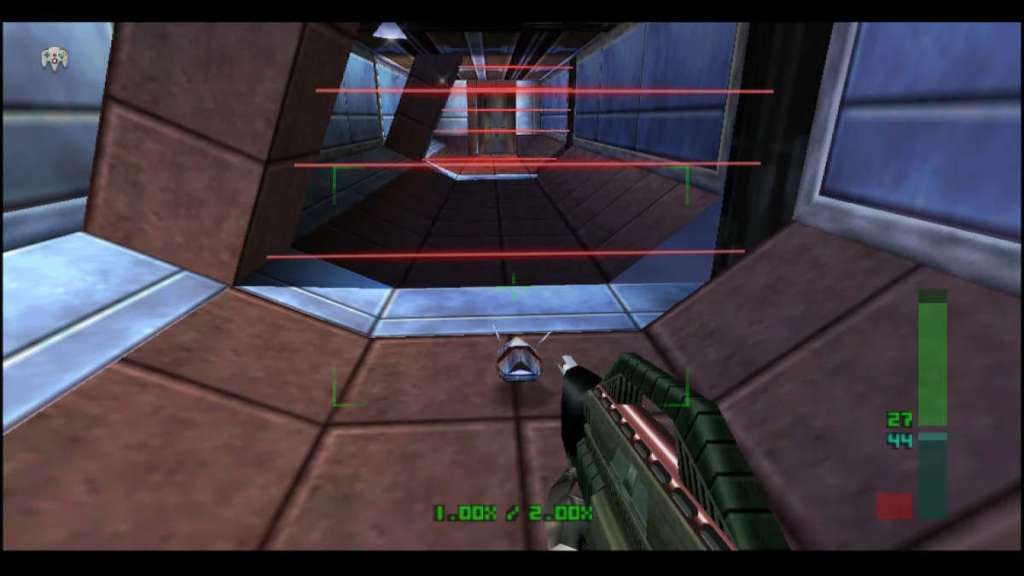
Perfect Dark is described as a “spiritual successor” to GoldenEye 007, runs on an upgraded version of the same game engine, and was developed and released three years later in 2000. Perfect Dark came not only with a solo campaign mode but also multiplayer options such as co-operative and deathmatch modes. It’s making a comeback as well, but it remains to be seen whether a remake can touch the nostalgia of the original.
As Joanna Dark, you must complete objectives while avoiding or eliminating opponents to eventually stop an extraterrestrial conspiracy by a corporation known as dataDyne. As with GoldenEye, there are many weapons to choose from, but now these weapons all have additional useful features. The K7 Avenger, for instance, will detect threats such as nearby explosives.
The Legend of Zelda: Majora’s Mask
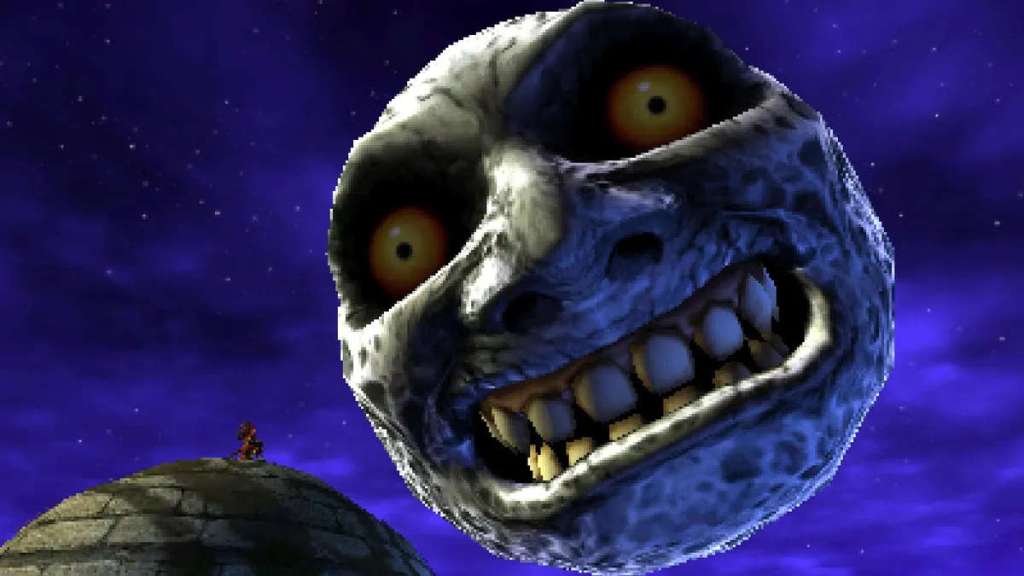
Released two years after Ocarina of Time, Majora’s Mask hit shelves and TV screens in 2000 and features the same 3D graphics that premiered in the previous title. Majora’s Mask is… Confusing, to say the least. The gameplay involves a 3-day cycle that must be replayed, using knowledge learned from previous cycles to perform better during subsequent ones.
One of the best features of Majora’s Mask is the transformations provided by the core masks that Link can use – a Deku Scrub, a Goron, and a Zora. Each transformation provides Link with different, incredibly useful abilities, and you’ll need to think carefully about which form you take to complete puzzles and quests throughout the story. And did I mention that Link can control time and the moon is enough to give any kid nightmares for weeks?
